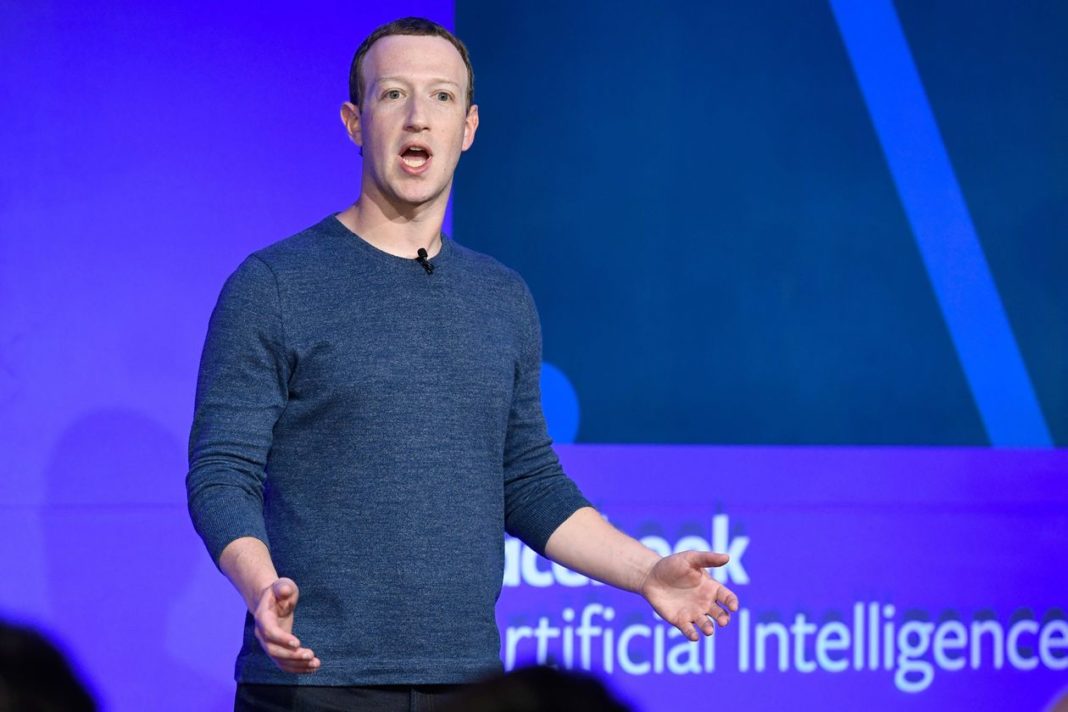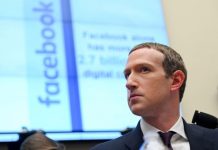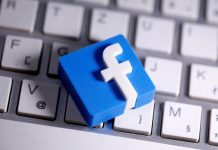Mark Zuckerberg offered a stalwart defense of liberal values on free speech last week, and it’s a sign of our illiberal times that progressives were his biggest critics. A Joe Biden spokesman accused the Facebook CEO of using “the Constitution as a shield for his company’s bottom line,” and pundits on Twitter raged at his refusal to censor ads for Donald Trump.
Mr. Zuckerberg’s offense was standing up for John Mill’s liberal marketplace of ideas that liberals used to stand for. At Georgetown University and in our pages Thursday, he committed Facebook to uphold a wide definition of free expression. This is good news with major implications for how information is distributed in the 21st century if Facebook honors this pledge.
When Facebook and other social-media sites took off in the 2000s, an elite consensus held that freewheeling debate advanced democratic government and liberal social causes. Then came the 2016 election. Many liberals saw Mr. Trump’s victory as a democratic malfunction and blamed Facebook, though they had previously lionized the platform for its role spreading candidate Barack Obama’s message.
The pressure on the platform to referee America’s political back-and-forth has increased with polarization. Mr. Zuckerberg’s comments seemed aimed at reminding the political left that it suffered most from censorship amid the polarizing episodes in the 20th century, citing the World War I-era prosecution of socialist Eugene Debs.
Today, conservatives are more likely to perceive that their views are suppressed on social media, and Republican Members of Congress have made it a top issue. A recent controversy of note was Facebook’s temporary suppression of a video produced by the pro-life group Live Action.
Facebook is a private company that isn’t obliged to follow a First Amendment standard. The company understandably doesn’t want its platform to resemble Gab or 8chan or PornHub, where obscene or violent content festers, as that would degrade the user experience. Facebook therefore regulates the outside boundaries of expression on its platform, but Mr. Zuckerberg says he doesn’t want the definition of impermissible speech to expand beyond “what is absolutely necessary.”
The challenge is to devise and enforce policies that are as viewpoint-neutral as possible. Mr. Zuckerberg says in particular that he doesn’t want to police political advertising by candidates, since that would mean trying to referee America’s raucous election debates. Intervention would inevitably lead to claims of political bias. Better to let candidates and the media brawl over competing claims as they do in traditional media.
Facebook has a handbook for “community standards” that are publicly available, and Mr. Zuckerberg restated his commitment to an “oversight board,” independent of Facebook management, which will have a final say on content decisions. The board will have an unwieldy 40 members serving three-year terms, and the company aims to announce the first members this year. It remains to be seen if the liberal hothouse that is Silicon Valley harasses conservatives on the board.
Google created an artificial-intelligence ethics board but it was dissolved in April after employees launched a character-assassination campaign against member Kay Coles James, the African-American president of the conservative Heritage Foundation. Mr. Zuckerberg told us in an interview that he was troubled by what happened at Google and that Facebook handles employee dissent differently.
A fair criticism of Mr. Zuckerberg’s remarks is that he posited too tidy a relationship between free speech and social “progress.” As with markets, free speech can be a process of creative destruction. It is essential for democratic legitimacy but the process can be unforgiving and winners aren’t predetermined. Sometimes reactionary views win the day.
Nonetheless, it’s remarkable that liberals are taking umbrage at a conventional statement of free-speech values they would have embraced a decade ago. California Senator Kamala Harris tried to stand out at last week’s presidential debate by taunting Elizabeth Warren to agree that Twitter should suspend Donald Trump’s account. Ms. Warren ducked that issue but she had spent the previous week demanding that Facebook censor Mr. Trump’s political ads.
Because they control the commanding heights of culture and are a supermajority in the cities where social-media companies are based, progressives seem to think they can impose a new, enlightened consensus by controlling political speech. They also long for the days when they dominated American politics.
But high-handed social-media censorship would only fracture politics further. Mr. Zuckerberg is making what seems to be a good-faith attempt to support free speech while defending Facebook’s business model, and the company must now deliver on his vision. With even the U.S. Supreme Court under attack from the left, creating a “Facebook Supreme Court” for free speech that commands public confidence will be no easy task.






























